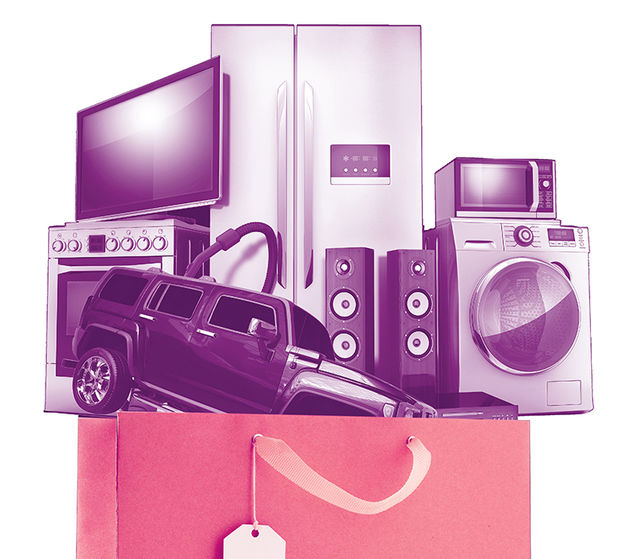The Deep Roots of Materialism
By Abigail Fagan published August 16, 2019 - last reviewed on September 3, 2019

The promise of new possessions is powerful. Evolution has cultivated that force: We need resources to survive. We want to be seen as successful. We relish portraying our identity to the world. And the anticipation of a purchase delivers a hit of dopamine. Ownership serves an important purpose, but it also contributes to looming global challenges, argues University of Bristol psychologist Bruce Hood. His book, Possessed, exposes the roots of materialism as a first step toward bringing overconsumption under control.
How did the concept of ownership arise?
Hunter gatherers don’t have a lot of possessions, because they can’t carry too many things around. Once we settled into societies, we started to accumulate wealth, so we needed rules to regulate who had access to resources and who could claim ownership. If you’re not present—if you wanted to go off and raid another tribe—those rules made sure your resources would still be there when you came back. That concept doesn’t exist elsewhere in the animal kingdom. Ownership allowed us to claim resources and transfer wealth through inheritance—one of the mechanisms that established modern society.
What is behind that drive to consume?
Wired into the brain is the need to be accepted, to be valued. There’s pressure in today’s society to be seen as successful, and someone who has luxury goods can be seen that way. But there’s a misconception that the wealthier you are, the happier you will be. That’s true up to a point, but after you’ve reached a certain level of income (around $75,000 in the U.S.), earning more money and buying more stuff doesn’t make you that happy. It’s often done to display to others how successful you are, rather than to reflect that to yourself. The more competitive a society is, the more money people spend on possessions they can’t afford.
How else do possessions relate to identity?
In behavioral economics, there’s something called the endowment effect. When things become ours, we think they’re more valuable than other people do. The most satisfying explanation for this bias is to think about objects as an extension of identity. This was articulated by philosopher and psychologist William James when he said that the self is really everything we can claim ownership over. There isn’t anything inherently wrong with that—the problem is when the consumption is driven by the expectation that you’ll achieve some level of satisfaction. It’s difficult to disentangle the motivations to buy luxury, because luxury goods generally are better made. But if you’re buying them for exclusivity, question why you’re doing it.
How might the psychology of ownership contribute to the current wave of populism?
It was interesting to listen to the rhetoric of Brexit supporters, which was about “taking back control.” Our land. Our people. Ours. It was all about ownership. I think people perceive a loss—a counterpoint to ownership—of certain ideologies and values. They fight against that by supporting those who speak strongly about protection and keeping outsiders away. The origins of ownership come, too, from a sense of control. If you own something, you can control it.
Why is it critical to interrogate the roots of ownership?
The main problem we’re facing is the future of the planet. Many factors contribute to climate change, but a major one is overconsumption, the relentless pursuit of material things that we don’t really need.
